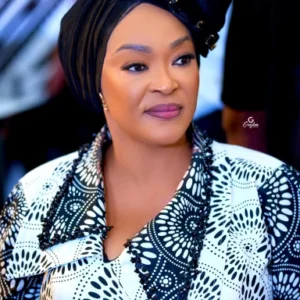Ghanaian Film Industry Professionals Moving to Nigeria – Horla Manuvor Jr

The Ghanaian film industry, already struggling with various challenges, is now facing a new dilemma as many of its key players are migrating to Nigeria in search of better opportunities and a more favorable environment for their careers. This trend is a growing concern for the local film industry, as filmmakers, actors, and other professionals are increasingly finding the Nigerian film sector more appealing, offering better prospects for growth and success.
Many of Ghana’s filmmakers and actors are making the move to Nigeria, primarily due to the lack of a thriving film industry in their home country, compounded by unfavorable conditions such as high taxes and limited funding. These obstacles have led to an environment where creative professionals struggle to realize their potential. In contrast, Nigeria offers an enabling environment where resources, mentorship, and career opportunities are more accessible, making it a more attractive destination for those seeking to advance in the film industry.
Horla Manuvor Jr., a rising filmmaker, shared his thoughts on this issue while speaking with Graphic Showbiz from his new base in Nigeria. He highlighted the limitations faced by filmmakers in Ghana, explaining that Nigeria’s film industry provides more resources, opportunities for hands-on experience, and a more conducive atmosphere for creative professionals to thrive. According to Manuvor, the high taxes imposed on logistics in Ghana and the scarcity of financial backing for projects have made it difficult for him to establish himself in his home country. In contrast, the Nigerian film industry offers more support, resources, and a dynamic environment, allowing him to gain invaluable experience and broaden his skills.
“As an emerging filmmaker, I found an excellent opportunity in Nigeria,” said Manuvor. “The vibrant film industry there offers a wealth of learning experiences and more chances to work on set. Unlike the challenges I faced back home in Ghana, Nigeria’s industry provided the mentorship and resources I desperately needed to progress in my career.”
Manuvor emphasized the contrast between the two countries, noting that the Nigerian film industry is booming with a vast market, a wealth of resources, and a solid infrastructure that allows filmmakers to flourish. He specifically pointed to the large number of cinemas in Nigeria that offer multiple platforms for filmmakers to showcase their work, which is something that Ghana currently lacks. Additionally, the tax regime in Nigeria is far more favorable than in Ghana, making it a much more attractive location for film production.
“The Nigerian film industry is alive with activity, supported by a strong market and substantial resources,” Manuvor explained. “With numerous cinemas in the country, filmmakers have more opportunities to screen their films. Additionally, the taxation policies on cinemas in Nigeria are far more advantageous, making it a more business-friendly environment. If you are looking to pursue a filmmaking career, Nigeria presents a much more favorable environment for success.”
Manuvor’s views resonate with those of other industry professionals, such as renowned filmmaker Peter Sedufia. In a previous interview with Graphic Showbiz, Sedufia discussed the high costs of production in Ghana, revealing that he chose to shoot his most recent film, One Night Guests, in Nigeria because of the lower production costs and easier access to resources. He mentioned that filming in Nigeria was more economically viable, with discounts on equipment and cheaper logistics compared to Ghana.
“We received significant discounts on equipment in Nigeria, and many of the costs were far lower than what we would have spent in Ghana. The tax regime in Ghana is simply too high, making film production in Nigeria much more cost-effective,” Sedufia stated.
The trend of Ghanaian filmmakers and actors moving to Nigeria is not limited to directors and producers. Many Ghanaian actors, including Etty Bedi, Toosweet Annan, Anthony Woode, Enock Darko, and Nana Yaw Boamah Addae, have also found success in Nollywood, leaving the Ghanaian film scene with fewer opportunities for local talent. These actors, who are now well-established within Nigeria’s thriving film industry, have made minimal appearances in Ghanaian productions in recent years.
This growing migration of talent underscores the deepening crisis in Ghana’s film industry. As local professionals continue to flock to Nigeria in search of better opportunities, the country risks losing more of its brightest stars to a more vibrant and resource-rich neighbor. To reverse this trend, Ghana must focus on creating a more supportive environment for its filmmakers, addressing issues like high production costs, inadequate infrastructure, and limited financial backing. Only by tackling these challenges can Ghana hope to retain its top talent and develop a more sustainable and successful film industry.






